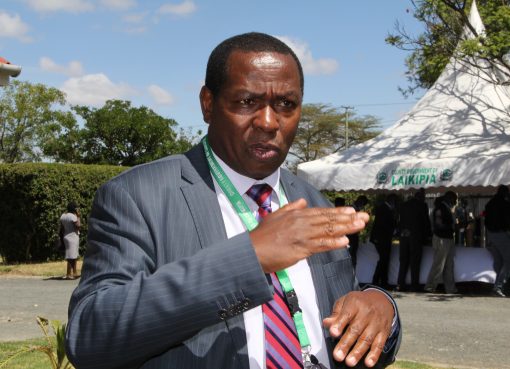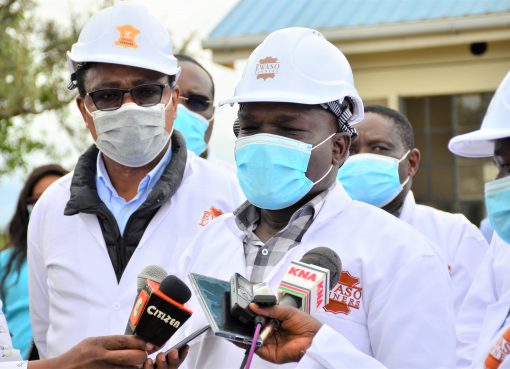Kenya is part of the collaborative Phase III R21/Matrix-M Malaria Vaccine Trial, which is evaluating a promising candidate malaria vaccine developed with the University of Oxford with the Serum Institute of India, as well as partners across Africa.
The trial, which in Kenya is being led by the Head of Clinical Research at the KEMRI-Wellcome Trust research programme Dr. Mainga Hamaluba, seeks to assess the malaria vaccine’s, efficacy, its safety, and tolerability among infants and young children.
The trial is recruiting a total of 4,800 children aged between 5 – 36 months, most of whom have recently been vaccinated, with a total of 600 children being recruited in Kenya. The other participating countries in Africa are Burkina Faso, Mali, and Tanzania.
According to a press statement sent to newsrooms on Wednesday, this phase III trial builds on previous work done in two clinical trials (Phase Ib and IIb) in Kenya and Burkina Faso where 371 children previously received R21/Matrix-M. The data from these studies were reassuring with most side effects being mild and short-lived and strong immune responses were observed with high vaccine efficacy. The current phase III trial is a safety and efficacy trial aiming for licensure and rapid large-scale deployment by 2023.
“Once parents of participating children provide informed consent, the children will be screened to ensure they are healthy. After screening, those found eligible for vaccination will be assigned randomly to either receive R21/Matrix-M or a control vaccine (Rabies). There will be four vaccinations in total: 3 primary vaccinations 1 month apart then a booster, 12 months after the 3rd dose. Blood samples will be taken to assess immune responses around the time of vaccination. We will also be checking for malaria regularly throughout the study or when any child becomes unwell,” read the statement.
It further highlighted that malaria remains one of the leading causes of infectious diseases and death worldwide; increasingly affecting children of school going age in Sub-Saharan Africa.
“Early immunization would protect this vulnerable group. Recruitment will be focused in Kilifi County where children are disproportionally affected by malaria due to higher transmission. We aim to demonstrate that the vaccine works in this high-risk population,” read the statement in part.
It added that with the current demand for improved malaria control, vaccines are required to be safe, affordable, can be manufactured at scale and efficacious across age groups.
“The malaria parasite is a complex parasite with multiple mechanisms to escape our immune responses. This has made development of a vaccine challenging despite decades of work assessing different candidate vaccines,” explained the statement.
It highlighted that while RTS,S was the world’s first vaccine licensed locally for an implementation programme, it provides limited protection against malaria and has yet to be approved for general use. RTS,S demonstrated 56% efficacy over 12 months in African children.
R21/Matrix -M, in comparison, has recently demonstrated efficacy of 77% over the same time period, and is the first malaria vaccine to meet the World Health Organization’s Malaria Vaccine Technology Roadmap goal of a vaccine with at least 75% efficacy.
This R21/Matrix-M vaccine was designed many years after RTS,S, and now aims to provide a more effective vaccine, at lower cost, that will be available at a much larger scale for use throughout malaria regions of Africa.
By Joseph Ng’ang’a





